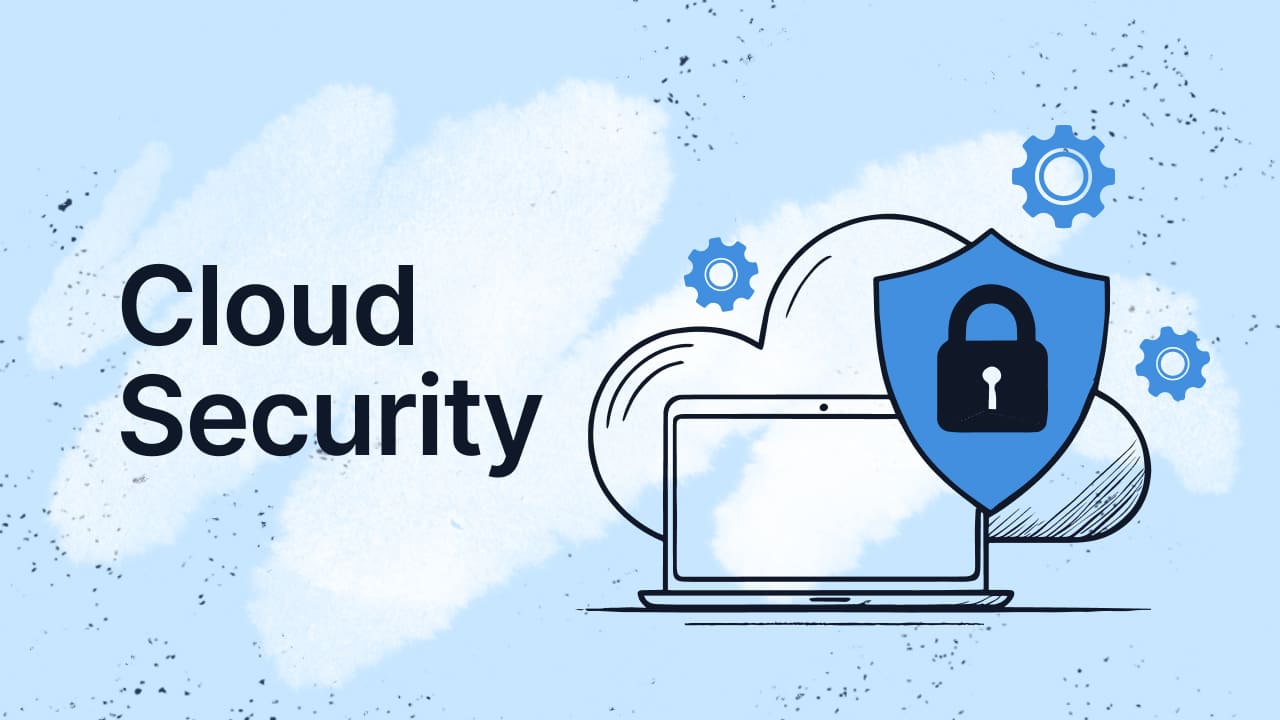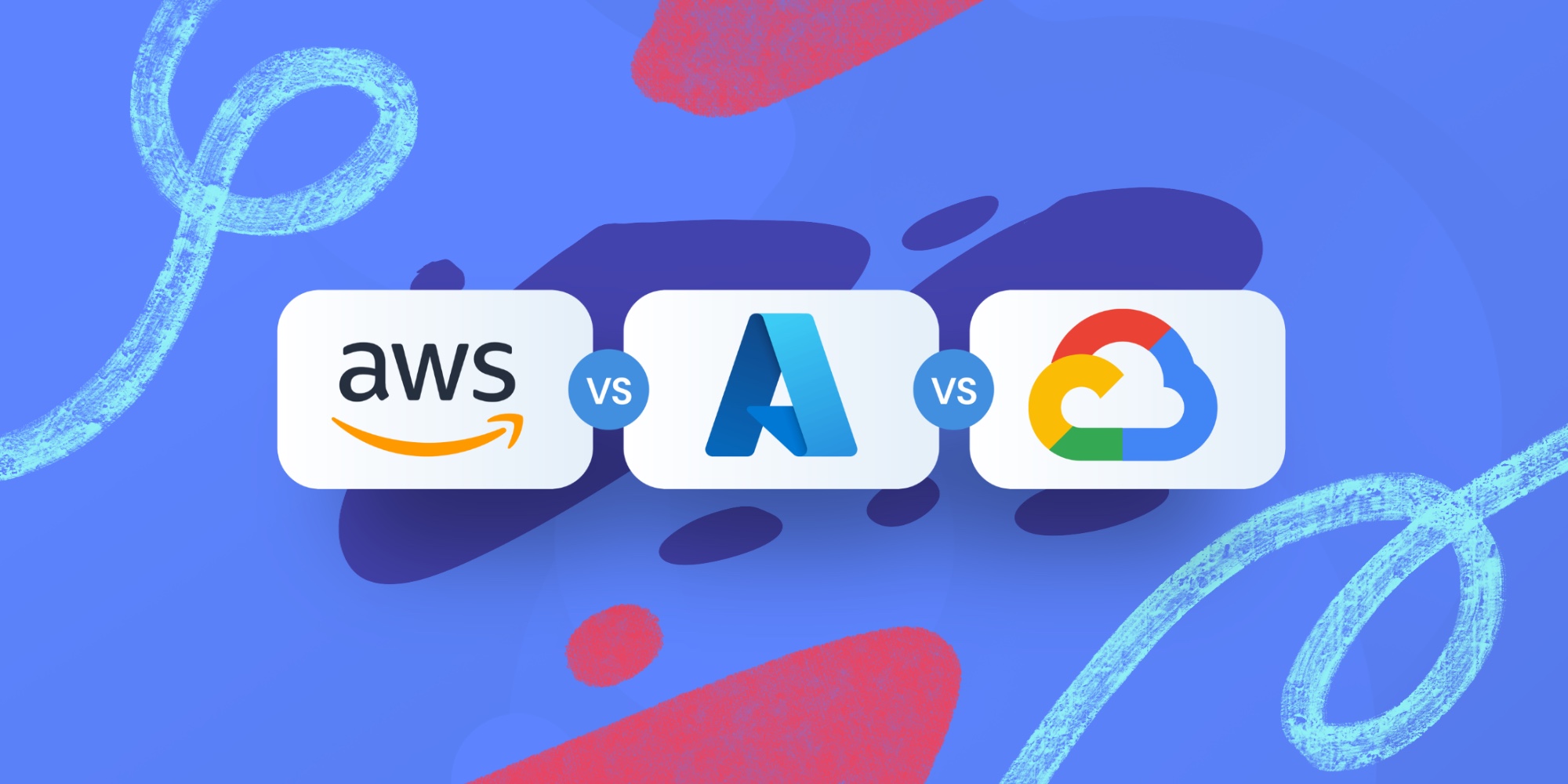While not every organization will opt for a private cloud, those who do must navigate a challenging market with numerous options. But what exactly are private cloud providers? How do they differ from other options, like public or hybrid cloud models?
Understanding these distinctions is essential for selecting a provider that meets your organization's specific needs and strategic goals.
Let's explore how the private cloud works, the features it provides, and what to look for when choosing a provider.
What is a private cloud?
A private cloud is a computing environment that provides similar advantages to a public cloud, like scalability and on-demand resources, but with infrastructure dedicated solely to one organization.
Unlike public clouds, where resources are shared across multiple users, a private cloud offers exclusive access to computing resources, storage, and networking.
But let us give you a heads-up: Although a private cloud offers more control over the environment, it's not an option for every organization.
A private cloud makes sense when:
- Data sovereignty is a concern: Companies operating in regulated industries might need to keep data within certain geographic boundaries or comply with strict privacy laws.
- You have high resource requirements: If your applications need guaranteed performance or you want to avoid the variability that can come with public cloud resources.
- You're ready for long-term infrastructure investments: A company that has predictable, steady workloads can benefit from a private cloud’s fixed costs compared to variable public cloud expenses.
Hosting options for private clouds
When setting up a private cloud, one of the most significant decisions you'll make is where to host it. There are three primary hosting options to consider, and choosing to have your private cloud managed by a provider is just one of them:
- On-premises: You can host your private cloud within your own data center. This option gives you full control over both the physical infrastructure and the cloud environment. However, it requires substantial IT resources to maintain.
- Third-party data center: Another option is to host your private cloud in a third-party provider's data center. Here, you maintain control of your cloud, but the provider is responsible for the physical infrastructure, such as power, cooling, and security.
- Managed by a private cloud provider: This option involves entrusting the entire cloud infrastructure and its operations to a provider. The provider owns, maintains, and manages everything, from hardware to security and software updates, while you focus on using the cloud services. It is ideal for organizations that want a private cloud without having to manage the complexities of running it.
This last model is the one we'll continue exploring in this article.

What are private cloud providers?
Private cloud providers are vendors that offer private cloud solutions either through a managed service model, hosted environment, or a combination of both. These companies typically handle infrastructure management, maintenance, and support, enabling businesses to focus on their core operations without getting bogged down by IT overhead.
These providers allow businesses to build and maintain a private cloud without the need for significant in-house resources. Choosing the right vendor involves understanding what your organization needs in terms of flexibility, security, and compliance.
Characteristics of private cloud environments:
- Dedicated resources: The entire cloud infrastructure is dedicated to a single organization, ensuring no resource sharing.
- Customization: Greater flexibility to customize services, storage, and configurations to meet specific needs.
- Enhanced security: Often includes additional security layers, such as dedicated firewalls, advanced encryption, and compliance monitoring.
- Scalability: While not as vast as public clouds, private cloud resources can be scaled up or down based on demand.
Service models for private clouds managed by a provider
Once you've chosen to have your cloud managed by a provider, you then have three service models to choose from, depending on how much control you want over cloud management.
- Managed service model:
In this model, the provider handles everything related to your private cloud. The provider is responsible for managing the infrastructure, software, security, updates, and performance. You don’t need to worry about the day-to-day operations, freeing your IT team to focus on other strategic tasks. This model works well for organizations that prioritize ease and efficiency over direct control.
- Hosted environment:
With this model, your cloud is hosted in the provider's data center, but you maintain control over managing the cloud environment. This means you’re responsible for software configurations, security protocols, and updates. The provider only manages the physical infrastructure. This model is suitable for businesses that need more control over their cloud but prefer not to manage the underlying hardware.
- Hybrid:
Some providers offer a hybrid service model, where they manage certain aspects of the cloud infrastructure (like physical maintenance, basic security, or scalability), while you retain control over specific parts of the environment, such as software or application management. This model offers a middle ground, giving you flexibility without the burden of full cloud management.
Choosing the right service model depends on your organization’s need for control, operational capacity, and the level of involvement you want in managing your private cloud. Each option offers distinct advantages that can align with different business goals, whether you're looking for full autonomy or prefer to outsource most of the management tasks.
Benefits of using private cloud providers
Private cloud environments offer a range of benefits over traditional on-premises infrastructure or public cloud models. They include:
- Enhanced control: Greater control over the configuration and management of resources.
- Data security: High-level security with dedicated environments and compliance-focused solutions.
- Customization: Options to tailor the environment to specific business needs, whether for performance, storage, or applications.
- Predictable costs: More predictable pricing models compared to public clouds, making budget management easier.
These benefits make private clouds ideal for businesses that prioritize security and customization over cost savings.

Key features to look for in private cloud providers
When evaluating private cloud providers, prioritize features that align with your business objectives. Here are some critical features to consider:
- Advanced security: Look for features such as encryption at rest and in transit, dedicated firewalls, and compliance management tools.
- Resource management: Ensure the provider offers comprehensive resource management tools, including dashboards for real-time monitoring.
- Automation aapabilities: Automation tools can streamline operations, reduce manual tasks, and improve efficiency.
- Disaster recovery: Built-in disaster recovery options with predefined RTOs (Recovery Time Objectives) and RPOs (Recovery Point Objectives).
- Multi-tenancy options: Some organizations may want to create separate environments for different departments. Multi-tenancy support can simplify this.
- API support: Ensure the cloud platform provides robust API access for integrating custom applications and third-party services.

Top private cloud providers to consider
Below is a list of leading private cloud providers, each with its own strengths and areas of focus:
Amazon Web Services (AWS)
AWS has established itself as the leading cloud service provider, offering a comprehensive suite of services including its private cloud capabilities through Amazon Virtual Private Cloud (VPC). AWS is known for its flexibility and scalability, making it suitable for businesses of all sizes. Its extensive global infrastructure ensures high availability and reliability, allowing organizations to deploy applications quickly and efficiently.
Key features:
- Highly customizable environments.
- Strong hybrid cloud capabilities.
- Extensive security features tailored for enterprise needs.
Microsoft Azure Stack
Microsoft Azure Stack extends Azure's capabilities into on-premises environments, allowing businesses to build and run applications across both public and private clouds seamlessly. This solution is particularly beneficial for organizations looking to maintain control over sensitive data while leveraging the power of Azure's cloud services.
Key features:
- Unified development and management tools.
- Support for IoT and edge computing deployments.
- Flexibility in deployment options across hybrid environments.
Google Cloud Platform (GCP)
Google Cloud Platform offers robust private cloud solutions that emphasize data analytics and machine learning. Its Virtual Private Cloud (VPC) allows businesses to create secure and isolated network environments, providing full control over resources while benefiting from Google's innovative technologies
Key features:
- Advanced machine learning and AI integration.
- Strong support for containerized applications via Kubernetes.
- Flexible pricing models suitable for various business needs.

IBM Cloud
IBM Cloud is tailored for enterprises seeking a comprehensive private cloud solution with strong emphasis on security and compliance. With its acquisition of Red Hat, IBM has enhanced its cloud offerings, enabling businesses to leverage open-source technologies alongside robust enterprise services.
Key features:
- Extensive support for AI and data analytics.
- Strong compliance capabilities for regulated industries.
- Integration with a wide range of enterprise applications.
Hewlett Packard Enterprise (HPE)
HPE provides a full spectrum of private cloud solutions through its HPE GreenLake service model, which enables organizations to consume IT resources as a service. This approach simplifies management while offering flexibility in scaling resources according to business demands.
Key features:
- Rapid deployment times for infrastructure.
- Comprehensive support for hybrid cloud strategies.
- Advanced analytics tools for performance monitoring.
Cisco
Cisco's private cloud offerings focus on modular architecture that allows businesses to customize their cloud environments according to specific needs. Cisco emphasizes security, providing robust tools to protect data and workloads within private clouds.
Key features:
- Self-service capabilities through Cisco Quickstart Private Cloud.
- Advanced security features with Cisco Firepower.
- Tools for workload optimization and application performance management.
Oracle Cloud
Oracle Cloud specializes in enterprise applications and database services, offering a strong private cloud solution that integrates seamlessly with existing Oracle software. This makes it an ideal choice for organizations heavily invested in Oracle technologies seeking enhanced performance and security.
Key features:
- Comprehensive database management capabilities.
- High levels of compliance and security features.
- Flexible pricing options tailored for enterprises.

Dell Technologies
Dell Technologies has made significant strides in the private cloud space with its Project Apex initiative, which provides streamlined management of hybrid IT environments. Dell’s solutions are designed to simplify infrastructure management while ensuring scalability and performance.
Key features:
- Rapid implementation timelines.
- Compatibility with edge computing workloads.
- Strong partnerships enhancing service offerings.
OpenStack
OpenStack is an open-source platform that allows organizations to create and manage their own private clouds. It provides flexibility and control over resources, making it suitable for businesses looking to customize their cloud environment without vendor lock-in.
Key features:
- Highly customizable architecture.
- Strong community support and continuous development.
- Compatibility with various hardware configurations.
Citrix Cloud
Citrix Cloud focuses on delivering virtual apps and desktops as a service, making it an excellent choice for organizations needing secure remote access solutions. Its private cloud offerings are designed to enhance productivity while maintaining strong security protocols.
Key features:
- Simplified management of virtual environments.
- Robust security features tailored for remote workforces.
- Integration with existing IT infrastructure for seamless operation.

How to choose the right private cloud provider
Selecting the right provider is crucial, as the wrong choice can lead to operational inefficiencies, increased costs, and security vulnerabilities. To make an informed decision, consider the following factors:
1. Security and compliance
One of the main reasons businesses opt for a private cloud is security. Ensure that the provider offers robust security measures, such as data encryption, network isolation, and compliance monitoring. Look for certifications relevant to your industry, like SOC 2, HIPAA, or ISO 27001. Providers should also offer the ability to control and audit data access to align with internal security policies.
2. Scalability and performance
While private clouds are known for exclusivity, the infrastructure should still support growth. Assess whether the provider can scale resources such as CPU, RAM, and storage dynamically as your business needs change. Consider load balancing options and performance monitoring tools to avoid bottlenecks during peak demand periods.
3. Customization options
Each organization has unique needs, so look for providers that offer a high degree of customization. This can include support for specific applications, custom SLAs (Service Level Agreements), or specialized storage configurations. Determine if the provider can tailor their solutions to meet both current and future requirements.
4. Integration capabilities
Many businesses operate with hybrid or multi-cloud strategies. Ensure that the provider offers integration capabilities with existing systems and supports hybrid deployments. Providers like Microsoft Azure Stack and VMware Cloud Foundation excel in environments where seamless integration with existing data centers is needed.
5. Support and management
Cloud management can be complex. Some providers offer fully managed services, handling everything from updates to monitoring. Consider the level of support you need—whether it's 24/7 support, a dedicated account manager, or self-service options for more technical teams.
6. Cost transparency
Private clouds often involve a higher initial cost compared to public clouds. However, pricing should be predictable. Look for providers that offer transparent pricing models, so there are no surprises down the line. Request a detailed breakdown of costs, including licensing fees, support, and additional services.
Conclusion
Choosing the right private cloud provider is about finding a balance between security, customization, and scalability. Each provider has its strengths, so it’s crucial to align these features with your organization’s priorities.
Assess security and compliance capabilities, integration options, and support services before making a decision. With a clear understanding of what private cloud providers offer, you can build an environment that enhances both efficiency and security for your business.
Incorporate these insights into your evaluation process to select a solution that meets your needs, both now and in the future.















